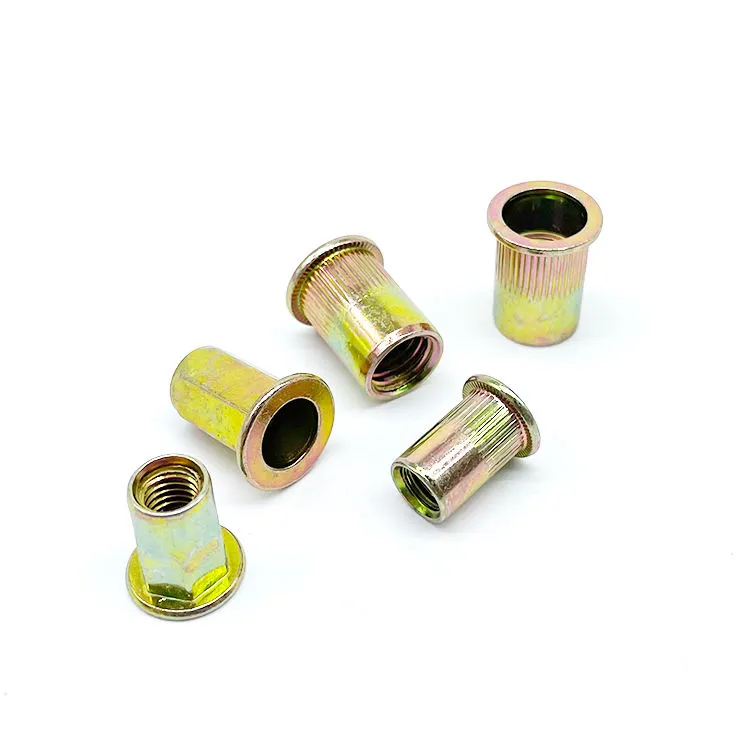

Exploring Diverse Types of Hardware Fasteners for Your Next Project
Th11 . 09, 2024 17:08 Back to list
Exploring Diverse Types of Hardware Fasteners for Your Next Project
Understanding Hardware Fasteners Types, Uses, and Importance
Hardware fasteners are essential components in the construction, manufacturing, automotive, and aerospace industries. These integral parts are designed to hold two or more objects together securely. Fasteners come in various shapes, sizes, and materials, each suited for specific applications. This article will explore the different types of hardware fasteners, their uses, and why they are vital in both industrial and everyday settings.
Types of Hardware Fasteners
1. Bolts Bolts are heavy-duty fasteners that resemble a screw but have a flat, smooth shank and typically require a nut to hold them in place. They are widely used in structural applications, such as bridges and buildings, and are available in various grades, materials, and coatings to enhance performance.
2. Nuts Nuts complement bolts and are used to secure them in place. They have a hexagonal shape and a threaded hole that fits onto the bolt. There are several types of nuts, including hex nuts, lock nuts, and flange nuts, each designed to provide specific locking mechanisms to prevent loosening.
3. Screws Screws are self-threading fasteners that can be driven into materials without the need for a pre-drilled hole. They come with various head shapes (such as flat, pan, or oval) and drive types (such as Phillips, slotted, or Torx), making them versatile for various applications from woodworking to metal fabrication.
4. Washers Washers are thin plates typically used in conjunction with bolts or screws to distribute load and prevent damage to surfaces. They also help prevent loosening from vibration, especially in mechanical applications.
5. Rivets Rivets are permanent fasteners that are used to join materials by deforming the tail end after insertion. They are often found in applications where welding is not feasible, such as aircraft manufacturing and metal fabrication.
6. Anchors Anchors are essential for attaching items to concrete or masonry. They come in various types, such as expansion anchors and adhesive anchors, and are crucial for securing objects in construction and renovation projects.
hardware fasteners

7. Pins Pins, including cotter pins and dowel pins, are used to secure components together or to align parts in a mechanical assembly. They serve as pivot points or axles and are often used in machinery and automotive applications.
Uses of Hardware Fasteners
Hardware fasteners are utilized across a wide range of industries for numerous applications. In construction, they are fundamental in assembling frameworks, holding structural elements together, and anchoring materials securely. In manufacturing, fasteners are critical for assembly lines and machinery, ensuring that products are built to specifications.
In the automotive industry, fasteners hold together various components of vehicles, from the engine to the body. In the aerospace sector, where safety and reliability are paramount, fasteners are rigorously tested to ensure they can withstand harsh conditions and high stress.
Additionally, in a domestic context, fasteners play a vital role in everyday items such as furniture assembly, home repairs, and DIY projects. Their versatility enables homeowners and DIY enthusiasts to create, modify, or repair items with ease.
Importance of Hardware Fasteners
The significance of hardware fasteners cannot be overstated. They not only ensure the integrity and safety of structures and products but also enhance efficiency in manufacturing and construction processes. Quality fasteners maintain the reliability of machines, prevent failures, and extend the lifespan of assemblies.
Choosing the right fastener is essential for any project. Factors such as the materials being joined, environmental conditions, load requirements, and potential for vibration all play a role in determining the appropriate fastener type and material.
In conclusion, hardware fasteners are fundamental components across various industries and applications. Understanding the different types and their uses is crucial for anyone involved in construction, manufacturing, or DIY projects. As technology evolves, so too will the materials and designs of fasteners, but their importance in providing structural integrity and enabling effective assembly will remain a constant in engineering and craftsmanship.
Latest news
-
High-Strength Hot Dip Galvanized Bolts - LongZe | Corrosion Resistance, Custom Sizes
NewsAug.01,2025
-
Best Self Tapping Screws for Drywall - Fast & Secure Installation
NewsJul.31,2025
-
High-Strength Hot Dip Galvanized Bolts-Hebei Longze|Corrosion Resistance&Customization
NewsJul.31,2025
-
Hot Dip Galvanized Bolts-Hebei Longze Metal Products|Corrosion Resistance&High Strength
NewsJul.31,2025
-
Hot Dip Galvanized Bolts-About LongZe|High Strength, Corrosion Resistance
NewsJul.30,2025
-
High-Strength Hot Dip Galvanized Bolts - Hebei Longze | Corrosion Resistance, Customization
NewsJul.30,2025

